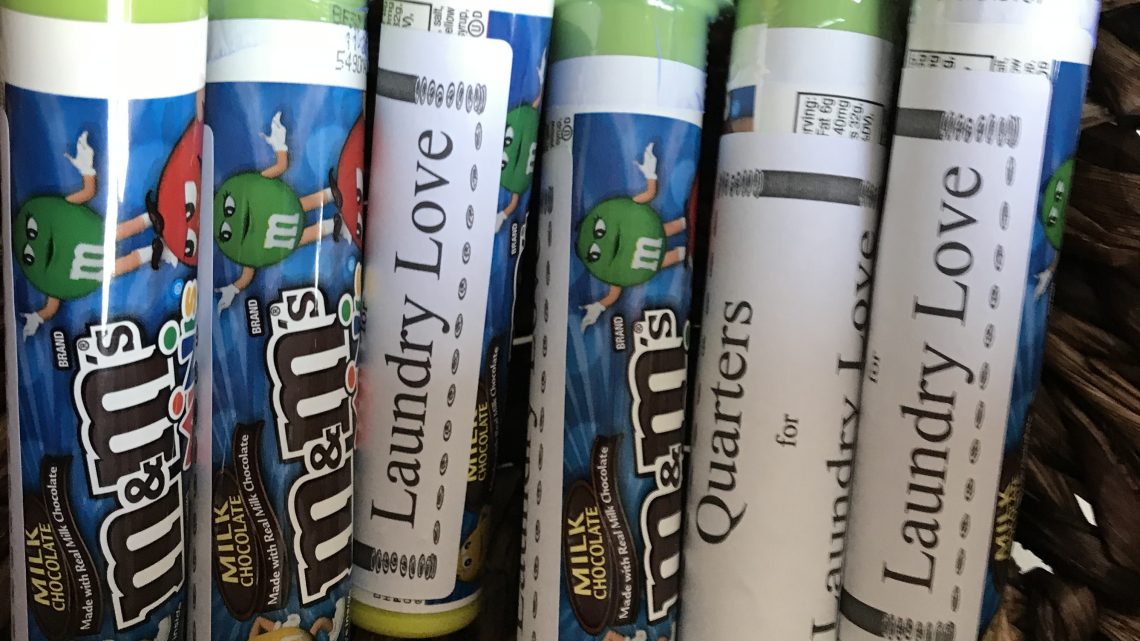Laundry Love, a nationwide human-care initiative, helps wash clothes and bedding for individuals or families living in poverty. “We provide the quarters and laundry detergent for those who are struggling and trying to make ends meet,” says Terri Krovoza of the Jamestown Church. Krovoza is founder of the local Laundry Love effort.
The story of Laundry Love began with T-Bone (Eric), a homeless gentleman living in Ventura, California. T-Bone was asked, “How can we come alongside your life in a way that would matter?”
His response was honest and practical, “If I had clean clothes, I think people would treat me like a human being.” Thus, Laundry Love was born.
Collecting quarters
To help facilitate the Jamestown Laundry Love, Krovoza purchased Mini M&Ms that come in circular containers, and took them to church in a basket with a sign saying, “Eat the M&Ms and bring back the container filled with quarters for Laundry Love.”
Shortly, she had over $300 in quarters. The Homeless Coalition—of which she is also a member—donated $250. A local church invited her to speak about Laundry Love and ended up donating $250. They also took an offering, resulting in an additional $56.
The next step was to co-op with a local laundry. “Rainbow Laundry consented for us to use their place,” says Krovoza. It was agreed that the third Thursday of every month from 3-7 pm, Laundry Love would be available and Krovoza would be there.
The first Thursday, Krovoza went prepared with $300 in quarters, but only used $75. Nevertheless, she was undeterred.
A little later, a newspaper reporter happened to see a poster for Laundry Love at the laundromat. He contacted Krovoza and asked if he could take some pictures. “I was not ready for the newspaper,” she says, but he came.
Krovoza is excited about Laundry Love and hopes more people will take advantage of it. “We purchased some pocket-sized Signs of the Times for distribution. We just want to make them available, not push them,” Krovoza says.
The individuals being helped are appreciative of the work Krovoza is doing. “You should hear some of their stories,” she continues. “One poor girl came from Alabama to Jamestown to be with her boyfriend. He kicked her out and poured something all over her clothes. She had to wash everything. She was so appreciative.”
People who work with those in poverty can attest that keeping clothes clean and smelling fresh is a struggle for the impoverished. “When asked if they have clean clothes to wear for a job interview, they say no,” explains Krovoza. “If there is a question between food and clean clothes, they will always choose food.”









